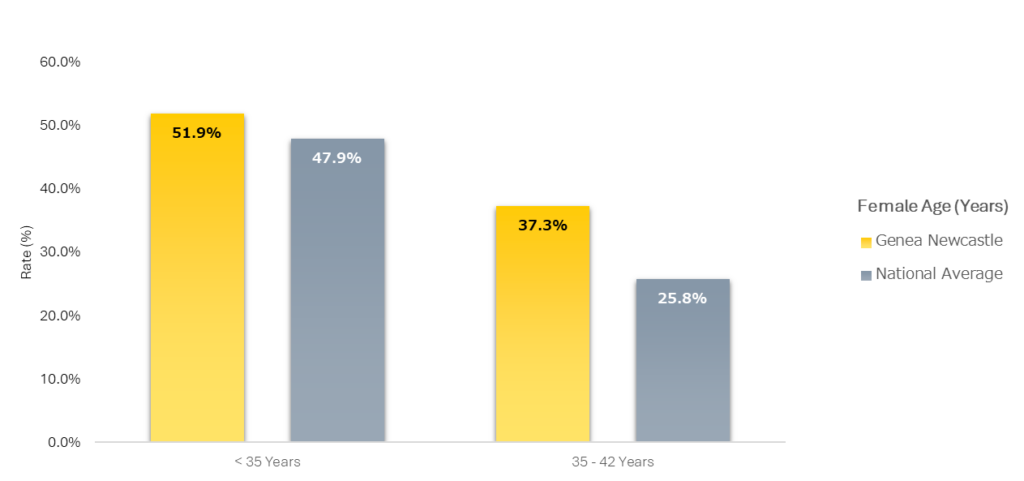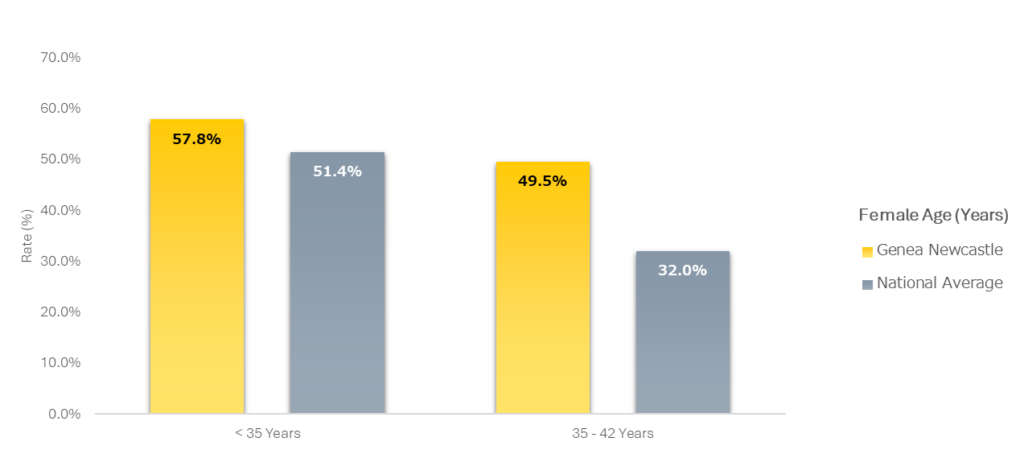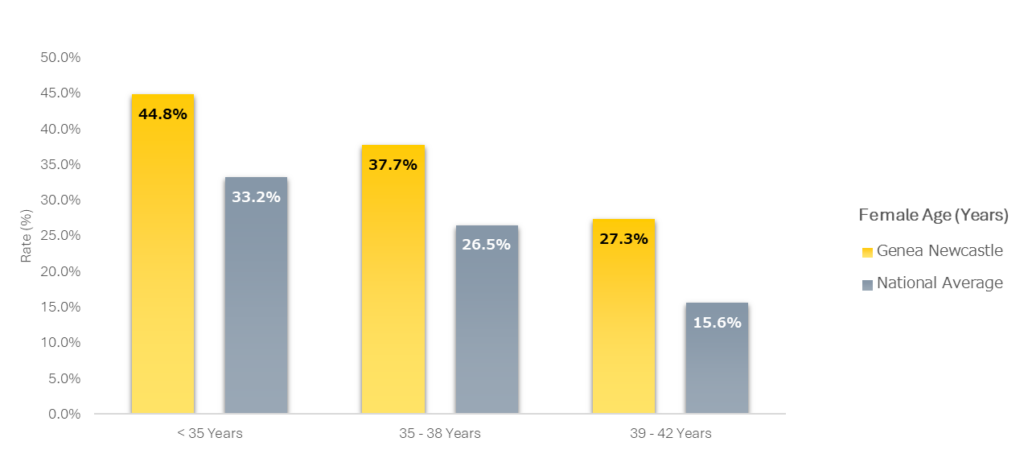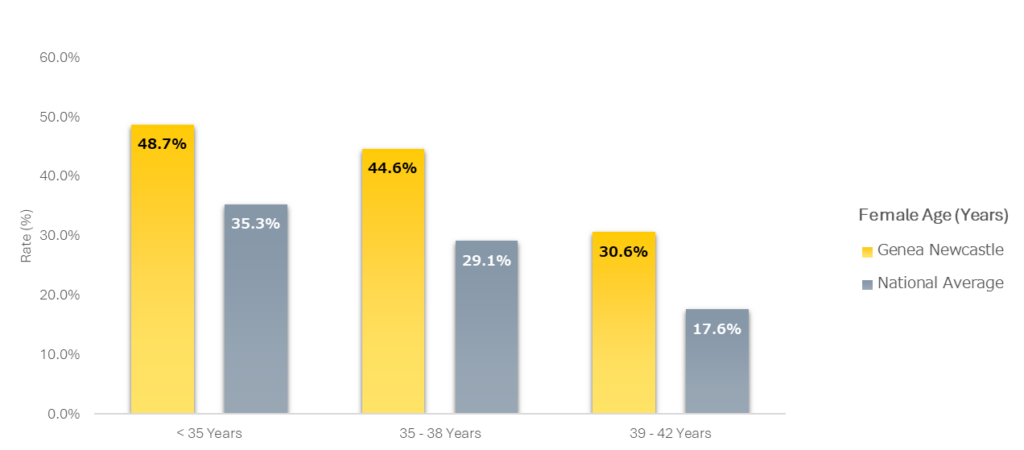Not all IVF clinics offer the same chances of success when it comes to having a baby.
In the past, there has been no easy way to compare IVF clinics to help you decide where you go for treatment.
Thankfully now there is a government-funded website that compares fertility clinics and estimates your chance of treatment success.
www.yourIVFsuccess.com.au compares over 90 clinics in Australia and New Zealand and we are proud to show that Genea Newcastle is one the top clinics across all categories.
Each year all accredited Australian IVF clinics must provide data to the Australian and New Zealand Assisted Reproduction Database (ANZARD). This data is used to calculate success rates in exactly the same way – so success rates are comparable and simple to use.
Clinics are required to share data relating to the number of live births per embryo transfer (when the woman is using her own eggs).
This includes fresh embryo transfers from IVF, ICSI and some PGD tested embryos. It also includes frozen embryo transfers on PGD and PGS tested embryos.
You can see our most recent results here.
The website also has an IVF success estimator where you can estimate your chance of having a baby using IVF.



